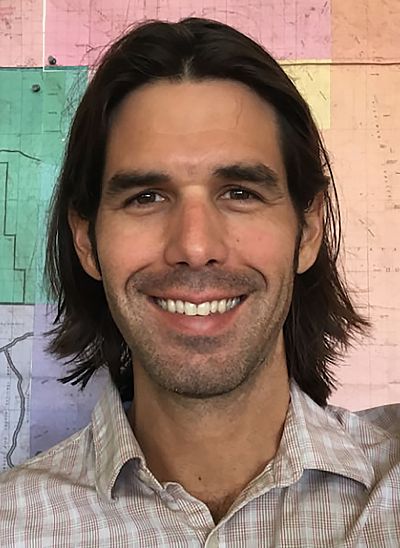Four members of the group No More Deaths face a maximum sentence of six months in prison and a possible $500 fine.
Four humanitarian aid volunteers were convicted of misdemeanor charges on Friday after leaving food and water for migrants crossing a remote wildlife refuge on the United States-Mexico border in 2017.
Four other volunteers with the group No More Deaths are set to go on trial next month and in March over similar charges, the organization said.
A ninth volunteer, Scott Warren, also faces felony harboring and concealment charges after allegedly providing food, water, beds and clean clothes to two undocumented immigrants last year. His trial is scheduled to begin in May.
In Friday's decision, United State District Court Judge Bernardo Velasco said the volunteers — Natalie Hoffman, Oona Holcomb, Madeline Huse and Zaachila Orozco — hadn't obtained permits to enter the Cabeza Prieta Refuge and Wilderness Area or followed the Department of Interior's rules while they were there.
They face a maximum sentence of six months in prison and a possible $500 fine.
No More Death has described the food and water its volunteers leave for the migrants in the 860,000-acre refuge, located west of Tucson, Arizona, as life-saving.
In a news release, the group said that 155 people are known to have died in the area since 2001.
"This verdict challenges not only No More Deaths volunteers, but people of conscience throughout the country," one of the group's volunteers, Catherine Gaffney, said in a statement. "If giving water to someone dying of thirst is illegal, what humanity is left in the law of this country?"
Last year, No More Deaths published videos of apparent border agents kicking and emptying water jugs that its volunteers had left in the desert. A report that was co-authored with La Coalición de Derechos Humanos documented what No More Deaths described as the "intentional destruction" of more than 3,000 gallons of water.
Carlos Diaz, Southwest Branch Chief for U.S. Customs and Border Protection, told NBC News last year that agents are advised to leave the water jugs alone.
"If anybody sees any activities like the ones seen in the videos, they need to inform us so we can take the corrective action because it's not acceptable," he said.
As punishment, the refuge's law enforcement officer could have admonished or banned the volunteers from the refuge, Velasco wrote. But in this case, he added, the Department of Interior and Department of Justice authorized their prosecution.
In addition to not obtaining entry permits, Velasco wrote, the volunteers did not remain on designated roads and they left food, water and crates in the refuge — moves that erode the area's "pristine nature," he wrote.
"No one in charge of No More Deaths ever informed them that their conduct could be prosecuted as a criminal defense," Velasco wrote. "The Court can only speculate as to what the Defendants' decisions would have been had they known the actual risk of their undertaking."












